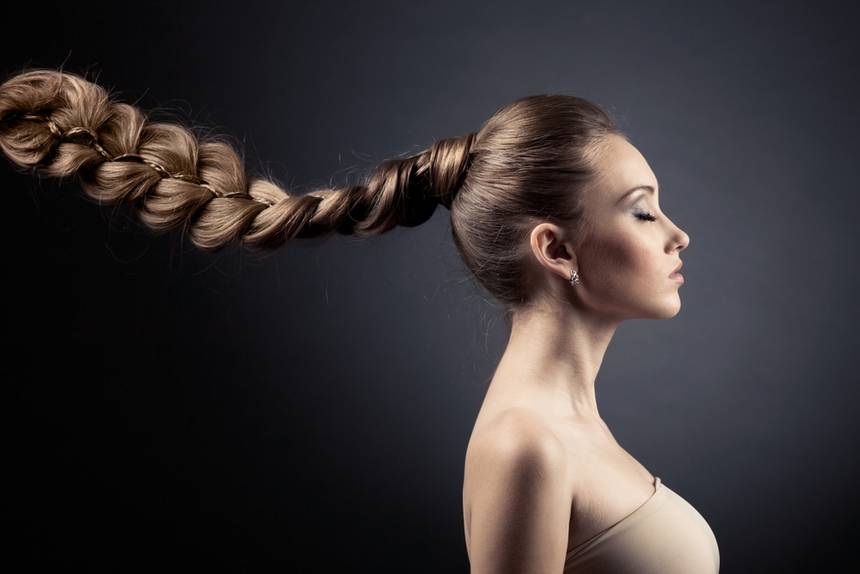Check out these synthetic chemicals in shampoo and conditioners that could actually lead to hair loss.
In this installment of “Welcome to the gaslighting dystopian world of corporate shenanigans” we present shampoo that actually makes your hair fall out. Hurray!
They sell us shelf-stable products that smell good and create luxuriant lather – but those properties are often achieved through the use of synthetic chemicals that can lead to hair loss. (Not to mention what those chemicals can do to the environment once we wash them down the drain.) We buy these products in the hope of ending up with the glossy cascading hair seen in the advertisements, when all along the products could be having the opposite effect.
You may remember when the bad boy of the beauty ingredients world, sodium laurel sulfate (SLS), started getting so much attention for being an irritant (and worse). Well as it turns out, SLS also may play a role in hair loss. And looking into it further, I found that it’s not alone in its ability to turn a head of thick lustrous locks in something less than thick lustrous locks. According to AARP and New York City hair specialist and restoration surgeon Dr. Robert Dorin, there’s a whole host of ingredients to avoid. (And some of them are implicated in health risks as well.)
If your hair seems thinner than before, it could be from a number of causes – but you might want to check the ingredient panels on your hair products and look for these.
FOAMERS AND THICKENERS
Sodium laurel sulfate (SLS): This surfactant is used as an industrial detergent and in a more-diluted form, helps shampoo have a big bubbly lather. But it’s also a well-known irritant and according to Dorin, “strips hair of essential oils, breaks down protein essential for hair health, and halts growth.”
Sodium chloride: There may be table salt in your shampoo! Well at least we know it’s not toxic, but when added as a thickener in products containing SLS, it can cause a dry, itchy scalp and can cause hair loss.
Polyethylene glycol (PEG): Also known as polyethylene or polyoxyethelyne, this shampoo thickener strips hair of moisture.
PRESERVATIVES
Quaternium-15, formaldehyde, parabens like methylparaben and propylparaben: These are often included to make a product last longer, but some of them are known for their effect on hormonal balance and may encourage hair loss.
IRRITANTS
Not that manufacturers are adding things intended to irritate, but nonetheless, there are synthetic ingredients that can cause scalp inflammation and allergic reactions, which can exacerbate hair loss and make thin hair dry, brittle and lifeless, says Dorin.
Diethanolamine (DEA) & triethanolamine (TEA) These can harm your hair’s natural keratin and for some people, can irritate the scalp.
Fragrances and artificial colors: We’ve been talking about the problems of synthetic fragrance and color for years. Dorin says to look on labels for “FD&C” or “D&C” followed by a color or number.
Propylene glycol: Otherwise known as car antifreeze – used to keep hair products from freezing during shipping and storage.
ALCOHOL
Most hair products have some type of alcohol. Fatty alcohols can actually help condition dry hair – WebMD advises remembering the ones that start with “c” and “s” as those are good for dry hair: Cetearyl alcohol, Cetyl alcohol and Stearyl alcohol. Avoid other alcohols that are in high concentration (listed in the top four ingredients), as they can dehydrate your hair.
GREASERS
Lanolin, petroleum and mineral oil: Yeah, no petroleum in my hair, thanks! But aside from just being unsavory, Dorin says that these ingredients can weigh down thin hair and prevent natural oils from being absorbed. (And that said, I know people who swear by lanolin for their thicker and/or curly hair, so that’s a different story.)
Who knew it was all so complicated? Well actually, we did. Which is why we have a million stories on shampoo alternatives, including homemade formulas and no shampoo at all. See related stories below.
